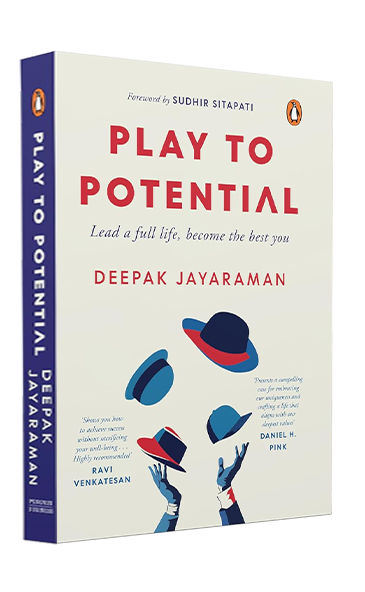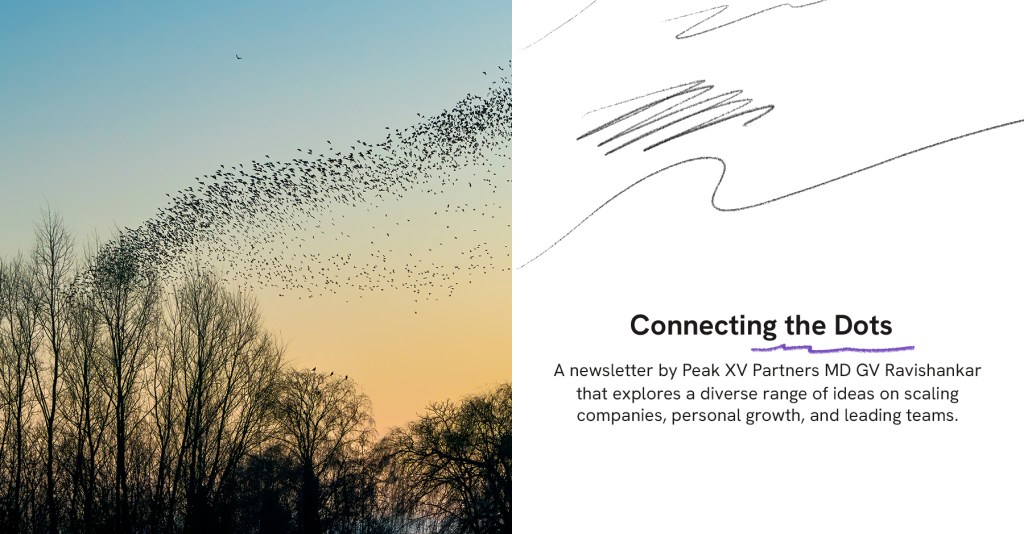Reminiscing on the Long Arc from the Summer of ‘99
ByGV Ravishankar
PublishedNovember 12, 2024
As life goes on, our definitions of happiness and success are often less defined by societal metrics and more shaped by the freedom to do the things we want to do and the ability to derive energy from those pursuits.
It’s the end of the year (What? Already?), a time when most of us reflect as we wind down for a few days and prepare to ring in the new year. This year, my reflections extended far beyond the year that is ending. I had just returned from the 25th reunion of REC/NIT Trichy, the institution from which both my better half and I graduated. More than half of our batch turned up from various corners of the world, reliving and reminiscing about our college days. This gave me a chance to reflect on the long arc of life.
Before the event, someone shared a meme in our WhatsApp group: “College reunions are a sham; the only reason people come is to see who has made it in life!” While I laughed, I couldn’t deny there was some truth to it. Many students in India’s top colleges are smart, hardworking, and, most noticeably, competitive. I was certainly one of those highly competitive individuals in my youth. Life felt like a race I had to win. I would bike on the road, pedaling furiously to “win” against other cyclists—except, of course, they didn’t know there was even a race!
In India, education often serves as a pathway for upward mobility out of the middle class. Many of us grew up in environments where academic excellence was paramount. Coming first in class was celebrated, while losing even a single mark in mathematics invited scrutiny. Over time, the drive to come first became all-consuming. For some of us, this relentless pursuit of winning led to hard work and tangible success. But what I learned at the reunion was a profound lesson about the nature of success and happiness.
The reunion’s formal proceedings began with a slideshow honoring batchmates who had left us far too early. It was a poignant reminder of life’s fragility and brevity, prompting a shift in my focus—from “Who has done well and who hasn’t?” to “How lucky am I to still be here, healthy and comfortable?” Over the next few days, as we rekindled old memories, shared life lessons, and learned about how others were shaping their lives as they enter the second half of their lives, I noticed a recurring theme. Many of us had shed the competitive spirit of our youth and had become more at peace with ourselves, less judgmental, and more focused on living life on our own terms.
Not once did anyone ask about money or wealth. Career success was notably absent from the conversations. Instead, people spoke about their families, their kids, and the activities that gave them energy and joy. I heard stories of friends embracing simplicity and finding fulfillment in pursuits aligned with their values. One friend, now teaching Tamil at a neighborhood school in the US, found purpose in sharing his cultural roots. Another reveled in Friday evenings spent singing and dancing with his kids and friends. Yet another, a passionate traveler, shared, “I am a much better person when traveling than at work, so I choose to be the better person.”
This shift in perspective was striking. People’s definitions of happiness and success were less defined by societal metrics and more shaped by the freedom to do the things they wished to do and the ability to derive energy from those pursuits. The “freedom to do what gives you energy” felt like a far more meaningful definition of success than the narrow goals drilled into us during our formative years. For many of us, our upbringing creates a narrow aperture to view the world and its possibilities. I have always believed that there are many routes to success, but this reunion gave me clarity that there are also many definitions of success.
Reflecting on this, I realized that everyone is on their own journey—like the cyclists I once raced against, oblivious to the competition I had imagined. As the year ends, it’s worth asking ourselves: What gives us energy? How can we align our definition of success with the pursuit of those activities and goals? And most importantly, how can we be fully present, building memories with our loved ones?
Years from now, these moments of joy, connection, and alignment with our true selves may be the only things that truly matter. Happy holidays, and may the coming year bring you success, happiness, and the freedom to pursue what energizes you!
“As the year ends, it’s worth asking ourselves: What gives us energy? How can we align our definition of success with the pursuit of those activities and goals? And most importantly, how can we be fully present, building memories with our loved ones?”
Recommended Reads
Three articles I found interesting:
- This Nature article, Stem Cells Head to the Clinic, discusses the progress of over 100 clinical trials testing stem cell therapies for regenerative medicine. This marks a significant turning point for a field that has faced ethical and political challenges.
- OpenAI’s most recent model, named o3, exhibits enhanced reasoning capabilities, surpassing its predecessor, o1, in complex tasks such as coding, mathematics, and science. Despite these advancements, this article in the New Scientist argues that o3 does not yet achieve artificial general intelligence (AGI). The model’s performance on reasoning benchmarks indicates significant progress, but experts caution that true AGI remains a distant goal.
- Ever wondered if you need to throw out expired medicines? Drug expiration dates, mandated by the US FDA (Food and Drug Administration) since 1979, are often set arbitrarily, typically around three years post-manufacture, without extensive long-term stability testing. Studies reveal that many medications retain potency well beyond these dates. However, manufacturers have little incentive to extend expiration periods, leading to unnecessary waste and increased costs for consumers as per this article.
If you have time for longer reads:

Play to Potential by Deepak Jayaraman
Deepak’s book is a refreshing take on leading a fulfilling life. If you read this edition of my newsletter and were left with a question on the “how”, this book provides an interesting template that can act as a guide. Synthesizing what he learned interviewing over a 100 leaders across domains and gathering from some people from his own circle (IIM, McKinsey), Deepak has presented to readers a framework that can help them unlock their human potential.

Good Energy by Casey Means, MD
Dr. Casey Means emphasizes that optimizing metabolic health is essential for overall well-being. While this is not unfamiliar, the book provides practical strategies to enhance energy levels, mental clarity, and longevity by focusing on nutrition, lifestyle adjustments, and understanding the body’s metabolic processes. In my last newsletter I had recommended a book called The Energy Advantage. This book helps address the physical energy that is needed for us to focus on the higher order stuff.
Do write in at gv@peakxv.com if my interests intersect with yours! Click here to read more articles on Peak XV’s blog. For more editions of Connecting the Dots, click here. I’m also on LinkedIn and Twitter.
